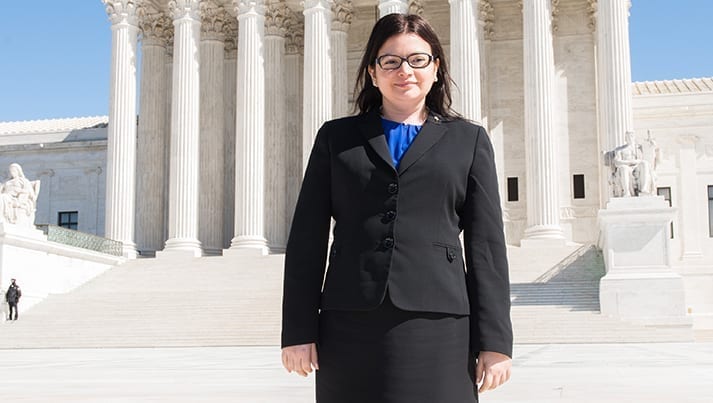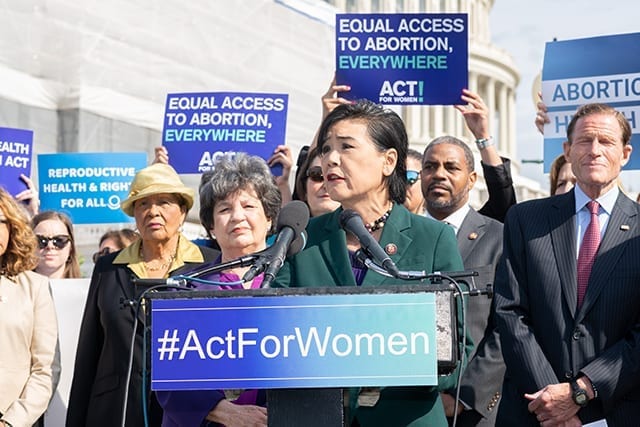Abortion Decision Puts U.S. Out of Step With the World
Times Herald-Record, Opinion, May 6, 2007
Nancy Northup, President, Center for Reproductive RightsRoe v. Wade was an early victory in the struggle for legal recognition of women’s right to reproductive health care. It gave strength to a global movement that is in full force today. It is therefore ironic that the U.S. Supreme Court’s recent retreat from its longstanding protection of women’s health should come at a time when countries worldwide are recognizing that reproductive health, including abortion, is a matter of fundamental human rights.Just last week, Mexico City lawmakers voted to legalize abortion, recognizing the right as central to women’s health. A similar measure was adopted last month in Portugal. And last summer, the Constitutional Court of Colombia declared unconstitutional the country’s blanket criminalization of abortion.Citing fundamental rights to life, health, equality, liberty and bodily integrity, the court held that “reproductive rights have finally been recognized as human rights.” As the court explained, “reproductive rights also emerge from the recognition that equality in general, gender equality in particular and the emancipation of women and girls are essential to society. Protecting … reproductive rights is a direct path to promoting the dignity of all human beings and a step forward in humanity’s advancement towards social justice.”
These are just some recent examples in a global trend toward abortion liberalization that has spanned decades. It is disheartening to see the United States align itself with the handful of countries such as Nicaragua and Poland that have actually increased barriers to safe abortion services in recent years.Unsafe abortions are a major global public health problem. According to the World Health Organization, about 20 million women around the world have unsafe abortions every year and nearly 70,000 die as a result. More than a decade ago, the Beijing Platform for Action called on governments to protect and advance women’s health. Recent changes in abortion laws around the world reflect many nations’ commitment to that goal. The United States, despite being one of the 189 signatories to the Platform, is not, sadly, such a state. Instead, 12 years after Beijing, the U.S. Supreme Court decided to validate laws that limit doctors’ options when performing abortions.Doctors in the United States who have used the now-banned procedure say that when it has been necessary, they have chosen it because it was the safest option for their patients. Today, by making that same choice, those doctors face criminal charges for honoring their medical and ethical obligation to preserve and protect their patients’ health.As Justice Ruth Bader Ginsburg wrote in her dissent, the court’s decision “tolerates, indeed applauds, federal intervention to ban nationwide a procedure found necessary and proper in certain cases by the American College of Obstetricians and Gynecologists. … And, for the first time since Roe v. Wade, the court blesses a prohibition with no exception safeguarding women’s health.”The willingness of the new majority of the court to overturn established law — although it was careful not to admit to it in the wording of the decision — invites states to craft new laws restricting abortions. Many Americans don’t realize that the legal building blocks are already in place to criminalize abortion if Roe is overturned. Many have old criminal abortion laws still on the books, some of which have never been blocked by injunctions. Other states have recently passed abortion bans that will immediately go into effect after a Roe reversal.Given these laws, the lack of state constitutional protections, and the composition of state legislatures, 30 states are poised to make abortion illegal in the wake of Roe being overturned.The American people have a history of standing up for and defending the rights of the oppressed, at home and abroad. We encourage citizens of other nations to stand up for democracy, including the rights of women. Yet, we are increasingly undermining those rights here at home.This decision by the court to uphold a law that sacrifices women’s health for the sake of ideology will cause many in the international community to ask that we look first in the mirror before judging others. The United States, once in the vanguard, is now out of step with an increasing global commitment to improving women’s health and lives.
www.recordonline.com/apps/pbcs.dll/article?AID=/20070506/OPINION/705060322



